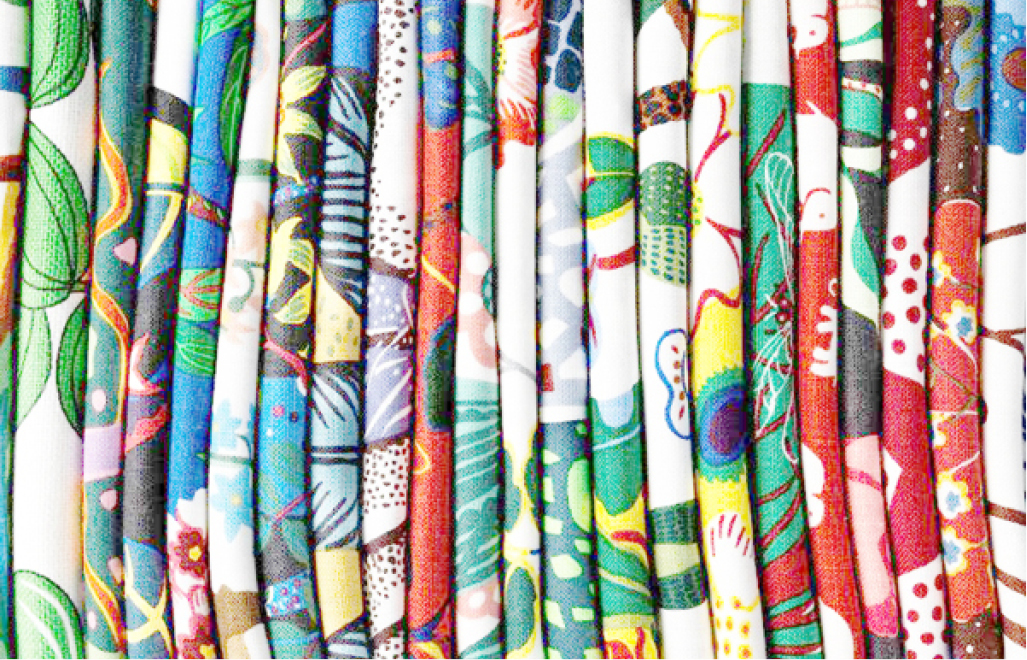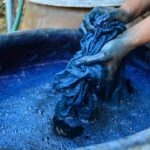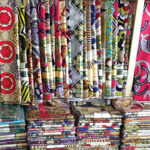– From 175 companies in 1980 to 25 in 2019
– FG wades in with N100b interventions
– Security outfits to source uniforms from local coy
– Interventions can create massive jobs-Experts
Major players in the Cotton, Textiles and Garments (CTG) industry in Nigeria have frowned at what they call the continued decrease in the number of textile factories in the country.
Their worry is coming at a time the federal government is making moves to revamp the moribund sector.
President Muhammadu Buhari recently directed the Central Bank of Nigeria (CBN) to release enough money to the sector with the aim of revamping it.
Textile experts who attended the just concluded 7th International Conference of the Textile Researchers Association of Nigeria (TRAN), which took place at Ahmadu Bello University, Zaria, observed that the sub-sector has become a shadow of itself following the closure of major factories – from 175 companies in 1980 to less than 25 in 2019 – with the surviving ones operating far below installed capacity.
They identified poor energy supply, infrastructural decay and flooding of the Nigerian markets with cheap, smuggled imported textiles as some of the reasons factories in the country have continued to close down.
And this, according to them, has forced Nigeria to spend more than $10 billion on importation of textiles on annual basis, despite the huge socio-economic losses that incurs on the country such as increase in unemployment, loss of foreign investment, loss of revenue from taxes and duties and increased importation of textiles materials to the nation’s detriment.
One of the experts and Director General of the Raw Materials Research and Development Council, Professor Hussaini D. Ibrahim, admitted that the industry in Nigeria is currently facing inherent challenges and needed to re-invent itself in view of the calls for environmentally friendly production facilities and economic requirements in the country.
The DG said RMRDC has helped the development of the sector through Techno-Economic Surveys of the Nigerian Textile Industry updated in 1992, 1996, 1999, 2003, 2006 and 2009; collaboration with the Institute of Agricultural Research (IAR/ABU, Zaria) to develop and release three long staple cotton seed varieties to farmers – Samcot 11, 12 and 13 – as well as boosting the supply of cotton lint to the Nigerian textile industry.
Others include capacity building training workshops for cotton farmers, and entrepreneurship training on industrial garment production for local and international (AGOA) markets. The African Growth and Opportunity Act (AGOA) is a United States Trade Act, that seeks to enhance market access to the US for qualifying Sub-Saharan African (SSA) countries.
The RMRDC boss observed that in order to enhance Nigeria’s comparative advantage in textiles production, there must be progressive time-phased deletion of imported equipment, stressing the need for urgent action, particularly now that many textile plants are obsolete and in dire need of refurbishment as well as modernization.
To be able to develop domestic technology in the 21st century, he said it was imperative that the nation embarks on a programme to rationalize, standardize and reduce the variety of the machines and equipment imported into the country in order to facilitate local production of machine components and spares with considerable economies of scale.
To achieve this, he stressed the need for textile-related engineering science and technical institutes to work jointly with textile manufacturers on adaptation and reproduction of selected imported machinery and equipment.
FG wades in
Worried by the unappealing state of the nation’s CTG’s sector, the federal government through the Governor of Central Bank (CBN), Mr. Godwin Emefiele, said it was looking at injecting N100 billion as its intervention in the Cotton, Textile and Garment (CTG) value chain.
Emefiele spoke after the signing of a Memorandum of Understanding (MoU) between the National Cotton Association of Nigeria (NACOTAN), Ginning Companies and Nigerian Textile Manufacturers Association as well as Armed Forces of Nigeria, Nigeria Police, Paramilitary Institutions & National Youth Service Corps on the need to source their uniforms from local textile companies.
Our Agric Editor, who has been monitoring the sector, reports that the apex bank has already disbursed about N50 billion to the cotton and ginning components including sourcing improved seeds for the cotton farmers.
The recent efforts by the government are capable of revamping the sector, which some experts said could overhaul the nation’s economy.
Cotton farmers, who spoke with Daily Trust on phone, said the intervention by the CBN in the area of input supply was fast changing their perspectives on cotton farming.
FG’s intervention can create massive jobs-experts
The Director-General of the RMRDC, Professor Hussaini Ibrahim, is of the opinion that if the current efforts by the government are sustained, the sector would be revamped and more job opportunities would be available for the teeming un-employed population.
He is of the opinion that with the recent efforts Nigeria could become self-sufficient in long staple cotton fibre, synthetic yarn, dyestuff, bleaches and other chemical inputs as the import bills of the items tend to make nonsense of the textile sector’s claim to local resource-based status.
According to him, there is also the need for local production of good quality suiting and shirting materials which are essential base fabrics for wearing apparel, noting that the quality of these products currently produced locally, can at best, be used for making uniforms or satisfy the needs of the low- and middle-income earners.
He also reiterated the need for active participation in the world market as a major criteria for the success of the local textile industry in the 21st century, adding that the industry should be the leading exporter of non-oil goods in the country.
Another expert, Dr Toyin Isiah, while welcoming proposed interventions by the government, observed that modern textile production is a capital-intensive activity, requiring huge financial outlay, noting that raising the required finance is very difficult particularly now that development banks are illiquid. Moreover, the procurement of adequate working capital from the banking system is a major problem especially in the wake of tight liquidity in the system.
The RMRDC DG stressed that smuggling/dumping is the largest threat to the existing textile manufacturers, noting that the practice is flourishing because of the permissiveness of Nigeria’s immediate neighbours and the laxity of the country’s border control which gives smugglers and their agents a thoroughfare into the country.
“The local textile firms are facing serious marketing problems as a result of the combined effects of smuggling, dumping and low consumer demand emanating from declining real incomes and weak purchasing power. Even the ECOWAS market which absorbs about 25% of Nigeria’s finished textile products has been on the decline following the devaluation of the CFA Franc, which has made Nigerian fabrics relatively costly.
“Lack of competitiveness has also prevented the industry from taking advantage of its limited export quota to the AGOA market,” the RMRDC DG also said.
To promote the development and resuscitation of the textiles sector, the experts are of the opinion that there is need for government to expedite the completion of key industrial projects such as in iron and steel, machine tools, and petrochemicals to aid the process of industrial backward integration; promote cotton cultivation generally and fund cotton research to ensure development of long staple cotton fibres.
They noted that the CTG sector, which is heavily raw materials-driven, can transform the economy of the country as the textile industry worldwide has high potential for value-added raw materials to finished good.
For Nigeria to reduce the over-reliance on imported raw materials and products and be able to open new markets, the experts observed the need to strengthen the existing institutional framework and develop new strategies to realize the potentials of the sector.
Among activities urgently required are to promote science and innovation researches to address the needs of the textile sector and enhance policy and fiscal measures such as incentives, tariffs, taxes, access to credits, grants and adequate infrastructural facilities, they said.

 Join Daily Trust WhatsApp Community For Quick Access To News and Happenings Around You.
Join Daily Trust WhatsApp Community For Quick Access To News and Happenings Around You.


